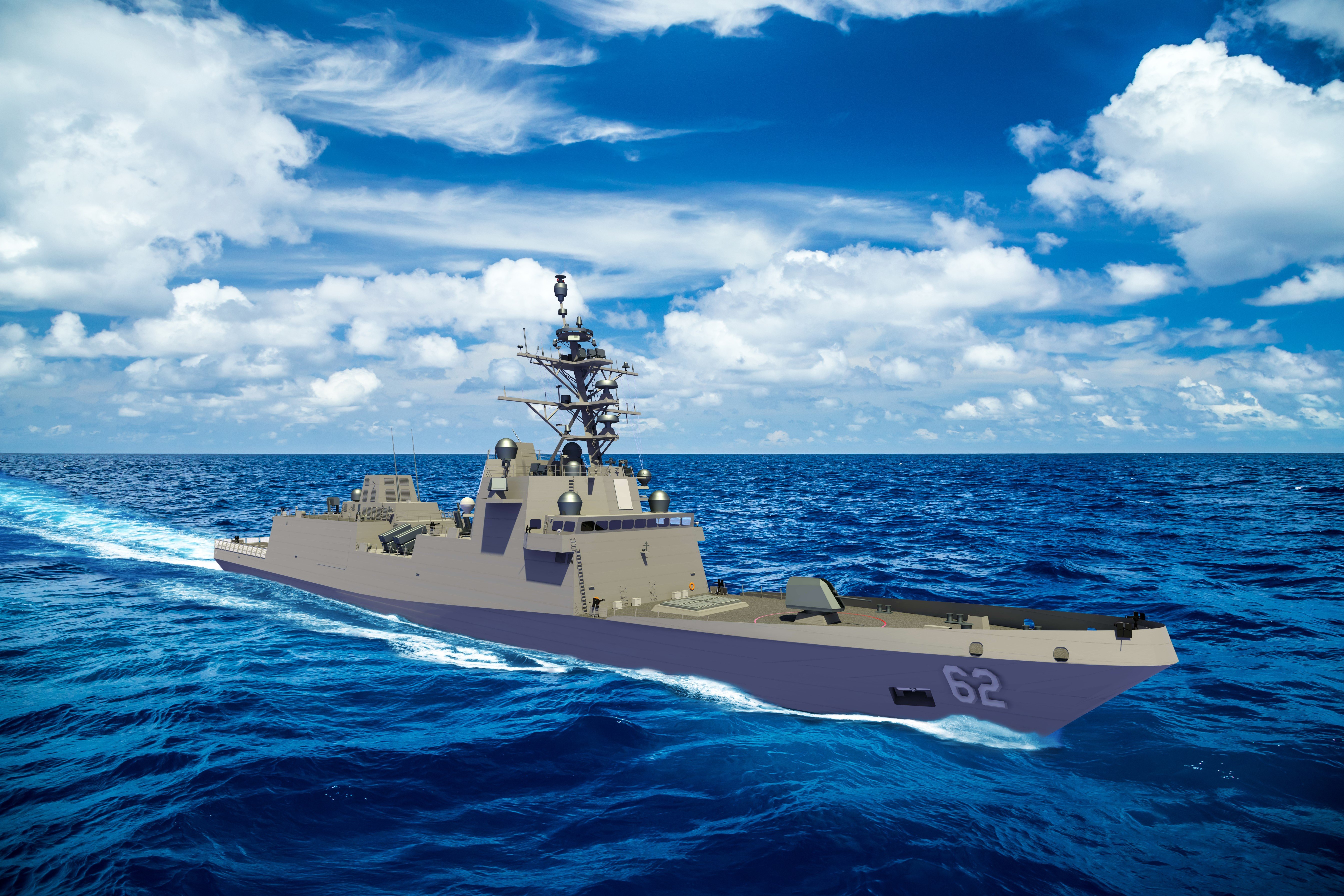
This post has been updated with a statement from the Secretary of the Navy Carlos Del Toro.
ARLINGTON, Va. – The first Constellation-class guided-missile frigate will deliver at least a year late due in large part to workforce shortfalls at the Wisconsin yard where it’s built, USNI News has learned.
The service has briefed Congress that the future USS Constellation (FFG-62) could deliver in 2027 and that shipyard Fincantieri Marinette Marine has undergone an independent review to assess the delay, a legislative source confirmed to USNI News this week.
During a program briefing on Thursday at the annual Surface Navy Symposium, the deputy manager for the frigate program acknowledged potential schedule slippage in the program due to the workforce issues. When asked for a ballpark on the schedule, Andy Bosak told USNI News the assessment is “ongoing.”
“We do have challenge in the schedule. We are working that. Fincantieri has communicated to us of challenges within the schedule,” Bosak told USNI News.
“We are doing our analysis, as the Navy does, of doing deep dives of causes and effects and various different levers of which we can pull within that shipyard,” he added. “And we need to, as a program, work with our leadership, kind of figure out what we want to do. And from that, we will make that assessment as to what the actual schedule impact is of where we are. And that effort is ongoing.”
Following an earlier version of this post, Secretary of the Navy Carlos Del Toro announced a review of Navy shipbuilding, citing concerns with the frigate program and the Columbia-class ballistic missile submarine program. NAVSEA head Vice Adm. Jim Downey and assistant secretary of the Navy for research, development and acquisition Nickolas Guertin will lead the evaluation.
“The American public should know that the Department of the Navy is committed to developing, delivering, and sustaining the finest warfighting capability to our Sailors and Marines,” Del Toro said in a statement. “We will continue to work with industry and all other stakeholders to strengthen our national shipbuilding capacity, both naval and commercial.”
Fincantieri Marinette Marine is short by several hundred people across both the blue and white-collar workforce, Bosak confirmed.
The yard in Marinette, Wis., is having trouble hiring welders, Capt. Kevin Smith, the program executive officer for unmanned and small combatants, told an audience at the same symposium. The workforce issues extend across multiple trades and disciplines, Bosak said on Thursday.
To get after the workforce shortfalls, there’s about $50 million for the surface combatant industrial base that the Navy has put aside for Fincantieri. The yard is using that money to issue bonuses to employees both in the blue and white-collar workforce to incentivize them to stay at Marinette. Employees who work on the frigate in the Marinette yard starting Jan. 1, 2024, and are still employed on Dec. 31, 2024, will receive $5,000, USNI News understands. Employees who are working on the frigate in the Marinette yard and remain with the program until the ship launches will receive another $5,000.
“We need young people in the country that are willing to take good-paying jobs – I mean I pay our skilled tradesmen well compared to the average blue-collar wage here in Wisconsin and the upper peninsula of Michigan,” Mark Vandroff, Fincantieri Marinette Marine’s chief executive officer, told USNI News last April during a visit to the Marinette yard. “But it’s a fight for talent – it really is. Labor is scarce.”
Fincantieri is also having issues managing the workforce rollover from its other programs, the last Freedom-class Littoral Combat Ships and Saudi Arabia’s multi-mission surface combatant. Some engineers who were supposed to roll over to the Connie program are still working on the LCS or the MMSC.
During last year’s visit, USNI News observed a full yard trying to wrap up the Freedom-class LCS line, while building the Royal Saudi Navy’s surface combatants and the new Connies. While the Navy has planned a saw-tooth buying scheme – alternating between one and two frigates per year – Vandroff has said his yard cannot build more than two frigates per year. If the Navy wants to ramp up to three or four frigates, it will have to turn to a second shipyard.
The design of the Constellation-class ships is based on the Italian FREMM multi-mission frigate parent design that was modified by ship designer Gibbs & Cox to accommodate Navy survivability and equipment requirements. The Leidos subsidiary, Fincantieri and Naval Sea Systems Command wrestled with Americanizing the FREMM design for two and half years before it hit the 80 percent design completion and could begin fabrication on Constellation in 2022.
The modification of the design altered almost every drawing of the FREMM and required review from NAVSEA, USNI News understands.
“[The Navy] and the shipbuilder agreed that design maturity was probably the single biggest factor we could do to reduce the risk of production,” former program executive officer for unmanned and small combatants Rear Adm. Casey Moton said in August of 2022.
For example, testing at Naval Surface Warfare Center, Carderock found that the modified design did not meet service standards for operating in heavy seas, necessitating design changes that ate into the schedule margin the yard wanted to have for the first-in-class ship.
“We were already into the functional and detail design when that report came from Carderock – something of a surprise because the parent design didn’t really have that,” Vandroff said.
It’s unclear how the delay in the delivery of the first-in-class frigate will affect the deployment schedule of Constellation. The first dozen of the anti-submarine warfare-focused ships will be based at Naval Station Everett, Wash.
The Navy issued Fincantieri a $795 million detail design and construction contract for the first ship in 2020. Then, the service awarded follow-on contracts for Congress (FFG-63) in 2021, Chesapeake (FFG-64) in 2022 and Lafayette (FFG-65) in 2023.




